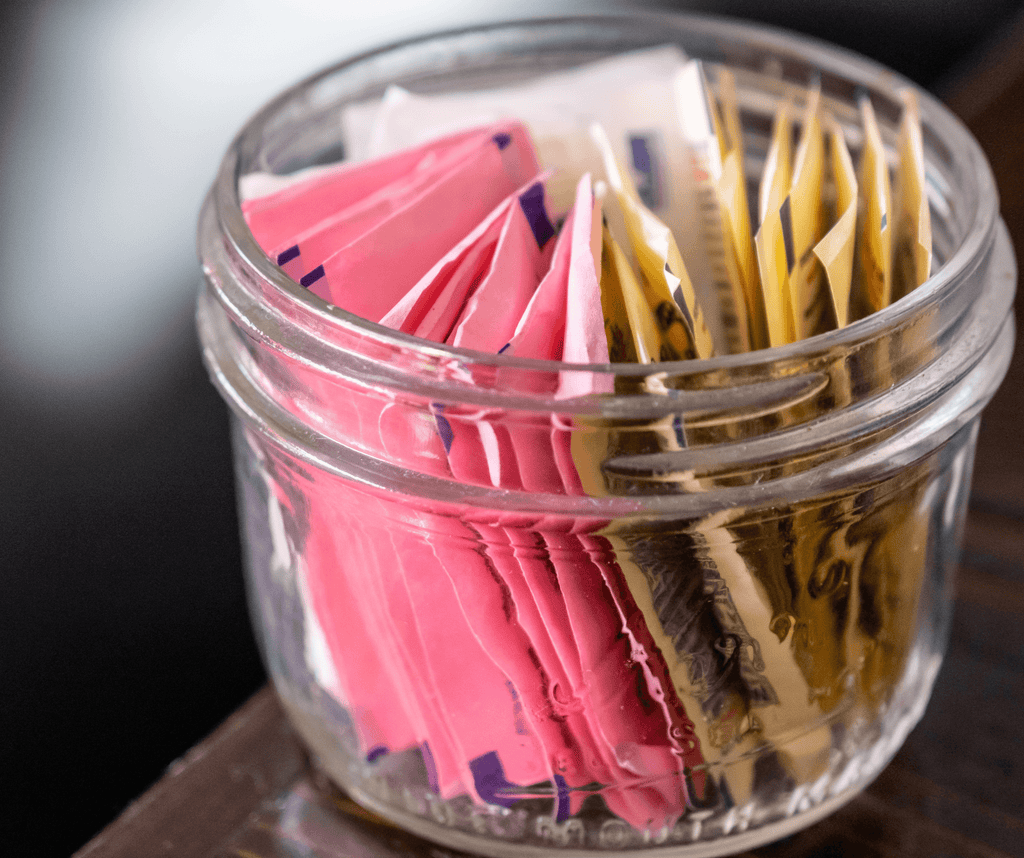Sugar Substitutes: New Cardiovascular Concerns?

Another study adds to the suspicion that artificial sweeteners may do more harm than good.
Diet sodas and other products that contain calorie-free artificial sweeteners are popular, especially among people trying to lose weight. But the health effects of sugar substitutes aren’t fully settled.
The evidence that drinking artificially sweetened beverages helps people slim down is mixed. And numerous small studies have hinted at potential health problems, including a higher risk of cancer, kidney disease, and heart disease. Now, a large study has found a potential link between artificial sweeteners and an increased risk of strokes, heart attacks, and related cardiovascular problems.
As is true for all observational studies, the findings can’t prove cause and effect, as other factors might explain the association. For instance, compared with people who didn’t use artificial sweeteners, people who consumed the highest amounts tended to have a higher body mass index, be less physically active, and to be following a weight-loss diet.
But the researchers accounted for those and other potentially confounding issues, says Teresa Fung, adjunct professor in the Department of Nutrition at the Harvard T.H. Chan School of Public Health. "People who develop high blood pressure and high cholesterol may be told by their doctors to start watching their weight, so they may switch to diet sodas," she says. So diet soda gets blamed for heart disease among people who were already at risk. To help control for this problem (known as reverse causation), researchers didn’t count any of the heart-related problems during the first two years of the follow-up.
Other strengths of this study include the large number of participants — more than 100,000 — and the detailed dietary analysis. Just over half of the sweeteners the participants reported consuming were from soft drinks. Another 30% came from tabletop sweeteners (such as those in the colored, single-serving packets), with the remainder from dairy-based foods and other products.
Case Study: Fake sugars and heart healthTo help clarify how artificial sweeteners might affect the heart, French scientists took advantage of the NutriNet Santé study, a large, Internet-based nutrition study. Their findings, summarized below, were published online Sept. 7, 2022, by the BMJ. Who: 103,388 people, about 80% women, with an average age of 42. What: Study volunteers provided detailed food records over several 24-hour periods along with other information that included lifestyle and health habits and medical history. More than one-third (37%) used artificial sweeteners, and they consumed about 42 milligrams per day, on average — an amount roughly equal to the contents of one tabletop packet or just under a quarter-cup of diet soda. When: During the follow-up, which lasted a median of nine years, participants received twice-yearly health questionnaires and were asked to report any new health exams, problems, or treatments. Key findings: Artificial sweeteners were linked to a 9% higher risk of any type of cardiovascular problem (including heart attacks) and an 18% greater risk of stroke. |
Unequal risks?
The study also identified three artificial sweeteners that appear to be the most problematic. Aspartame (NutraSweet, Equal) was linked to a higher risk of stroke, while acesulfame potassium (Sunnett, Sweet One) and sucralose (Splenda) were associated with higher coronary artery disease risk.
It’s not clear why these fake sugars might contribute to cardiovascular problems, says Fung. Some experts postulate that artificial sweeteners may trigger inflammation and alter normal metabolism, the gut microbiome, and blood vessels in ways that promote type 2 diabetes, unhealthy cholesterol levels, and high blood pressure. But these speculations are based on studies in animals or small numbers of people.
Diet soda swap
"These new findings provide yet another piece of evidence that artificial sweeteners may not be benign in terms of heart health," says Fung. Diet sodas and other artificially sweetened beverages (including teas and energy or sports drinks) are the biggest source of artificial sweeteners in the diet. If you drink those products on a daily basis, try switching to flavored, zero-calorie sparkling water, which now comes in many flavors, including watermelon, blackberry, and mango. Or add a splash of 100% fruit juice to plain sparkling water. "You can enjoy fizz and flavor without questionable additives," says Fung.

Leave a comment